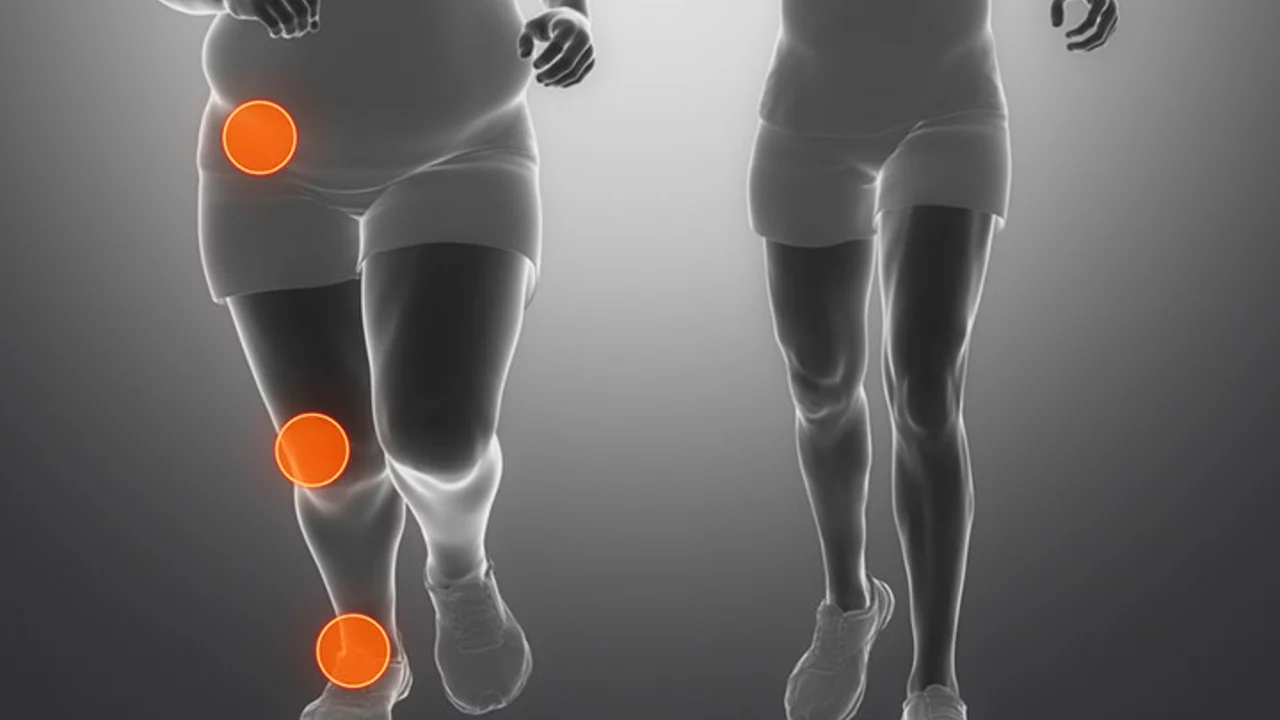The Connection Between Obesity and Joint Damage: Unravelling the Complex Interplay
As a casual observer, I’ve always been fascinated by how all parts of our body are interconnected, moving in harmony and responding to each other in surprising ways. Some might say this is just a hobby, but for me – and my Siamese cat Cleo who loves to watch human anatomy documentaries with me – it's a way of life. How does this relate to our topic? Well, let me tell you. There's a complex interplay between obesity and joint damage, and this relationship is much deeper than we think. Now, pour yourself a cup of tea – let's delve into this fascinating topic.
Unveiling the Burden: How Obesity Weighs Down On Your Joints
Obesity often carries with it a hefty baggage of health concerns, one significant one being joint damage. But why exactly does this happen? The plot thickens when we realise that it isn't just a result of the extra physical load, but a complex synergy of myriad factors. To put it simply, your joints are a lot like my loyal Labrador, Max, trying to catch a frisbee you've thrown too high – they're trying their best, but the task is far beyond their limits. And the end result? Chronic discomfort and damage.
Cortisol Conundrum: Stress, Obesity, and Joint Damage
Ever wondered why 'stress eating' is a common phenomenon, especially when my wife Doris and I marathon our favourite show? Allow me to introduce you to cortisol – the 'stress hormone'. More often than not, cortisol is the scheming villain, promoting weight gain and indirectly inviting joint damage to the party. Despite our best efforts to maintain an active lifestyle (yes, even Doris has now picked up yoga), the fact remains that our bodies respond to stress in ways we can't entirely control, making the whole situation a bit complicated.
Eating Right: The First Step towards Joint Health
Doris often says, "A spoonful of sugar makes the medicine go down," but when it comes to joint health, it might be more accurate to say, "A plateful of veggies keeps joint damage away." Indeed, research proves that a diet rich in fruits, veggies and lean meats can drastically reduce inflammation – a common antagonist in this intricate obesity-joint damage narrative. Also, could we take a moment to appreciate how inventively Doris hides veggies in our meals? Even Cleo unknowingly enjoys her broccoli now.
The Ripple Effect: Mirroring the Body's Response to Exercise
When we exert ourselves (like when Max finally catches that elusive frisbee), our body undergoes numerous biological reactions. Regular exercise – which, to be clear, shouldn't be confused with the occasional jog when we're late for dinner – can actually strengthen the muscles that support our joints. This acts as a preventative measure against joint damage. It's brilliant really, akin to turning your body into a fortress, safeguarding your joints from the invasion of obesity-induced complications.
Taking Control: Managing Obesity and Joint Damage
Learning more about the nexus of obesity and joint damage can be daunting. Believe me, I know. However, the first step towards better health is understanding the problem. As you navigate this complex territory, remember that every small change, every healthier choice, will take you one step closer to the goal. Whether it's trading potato chips for carrot sticks, or choosing stairs over elevators (I write this as Max glares at the stairs, apparently not sharing my enthusiasm), remember to celebrate every small victory, for they matter more than you realise.
Underscoring the Role of Medical Intervention: When a Helping Hand is Necessary
While lifestyle changes are crucial, they may need to be complemented with medical intervention, especially in more severe cases. Notice how, when stubborn Max refuses to leave the park, it's Doris's gentle coaxing that finally works? Similarly, when battling obesity and joint damage, sometimes, despite our best efforts, we might need that extra bit of help – in the form of medical interventions like medication, therapy or even surgery. It's okay to seek help, for that's when healing truly begins.

